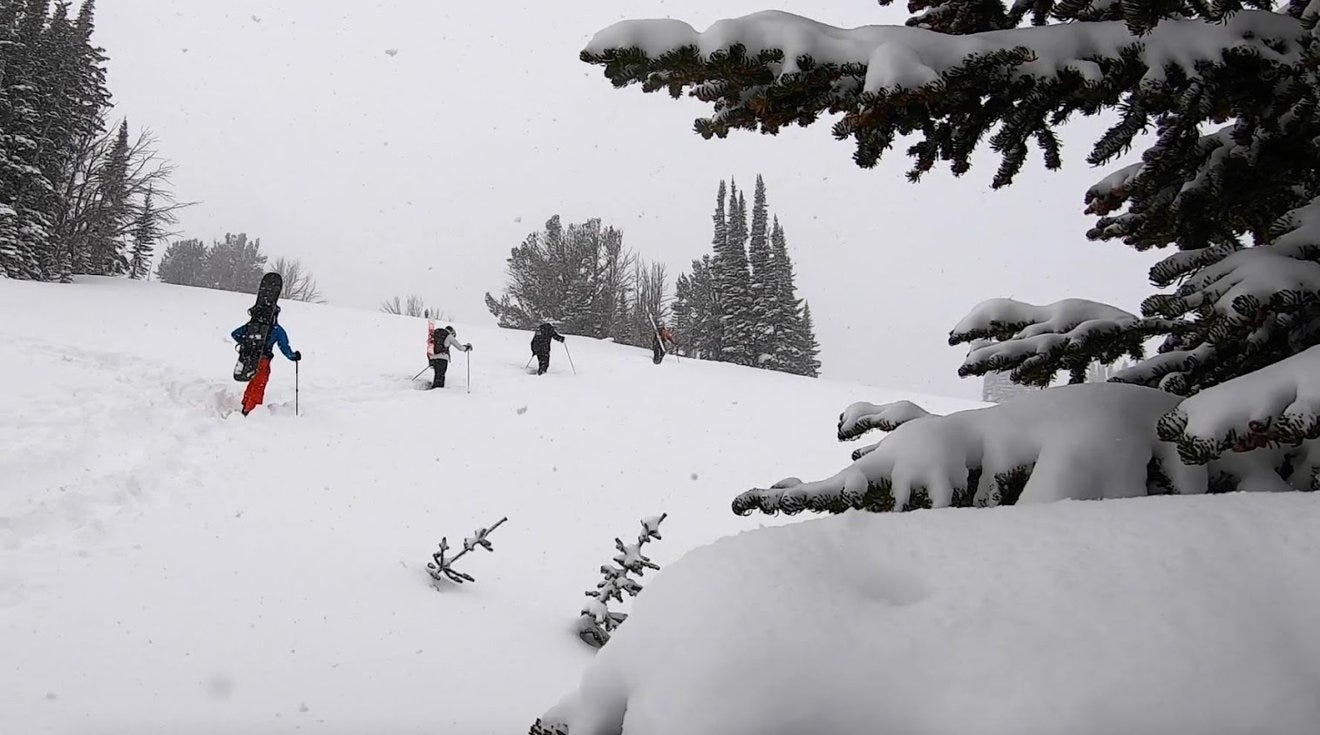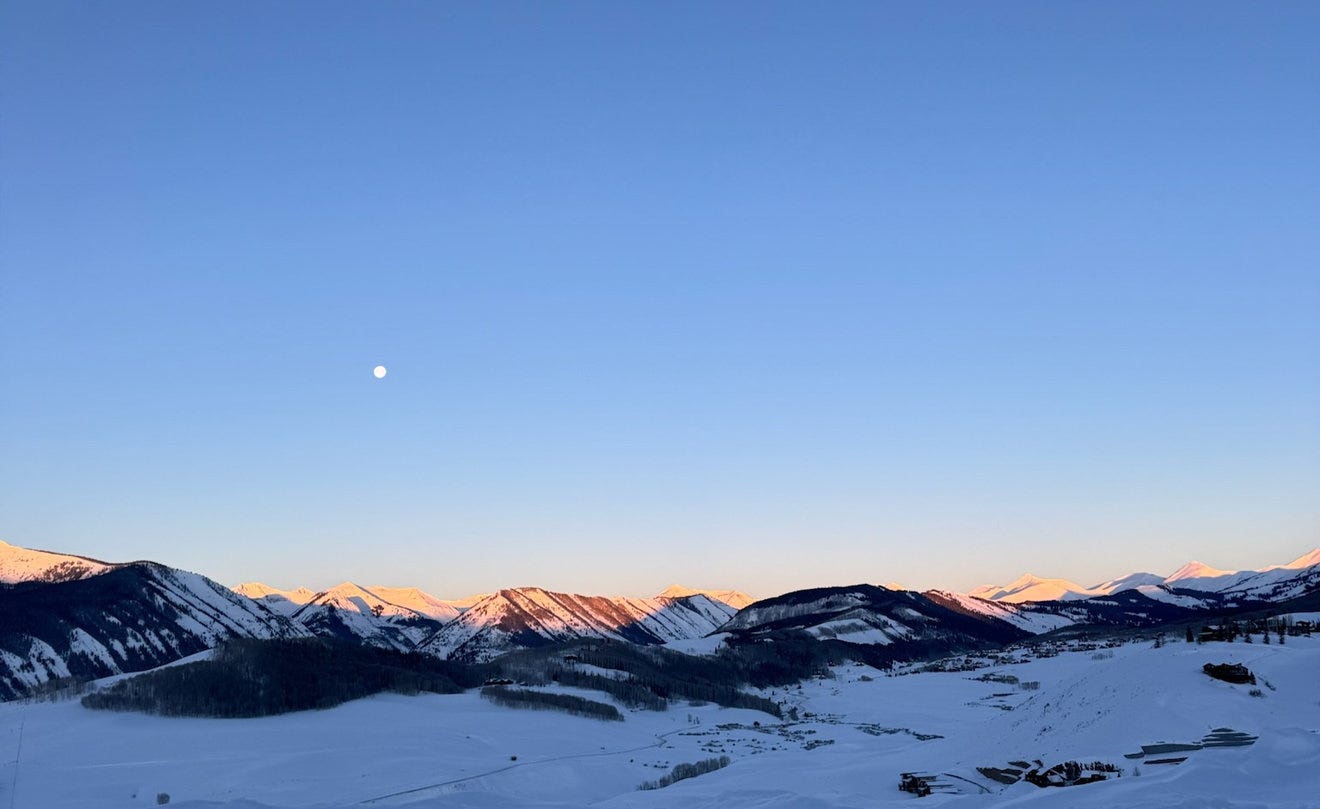Issue #3
Chasing Snow in a Warming World
Hey there,
While it might still be shorts weather in NYC and the leaves haven't changed, it's never too early to think about ski season. The backcountry promises freedom and solitude. But as climate change accelerates, things are starting to look different.
This issue highlights how climate change is reshaping backcountry skiing—from shorter winters and unpredictable snowpack to the broader ecological changes influencing alpine environments and recreation access. Keep reading for info on Fat Bear Week, October's Book Club, more. Let's get into it.
Stay wild,
🫶 Gen, PJ, & The Nature's Playbook Team
Shifting Snowpacks
Temperature and precipitation are the two biggest drivers of snowpack. In a warming climate, more precipitation is falling as rain instead of snow, leading to a reduction in both the depth and extent of seasonal snowpack. Nearly 80% of weather stations have recorded a decline in the share of precipitation falling as snow according to long-term data across the lower 48.
Snowpack is more than just a winter marker, it's a critical water reservoir for the western US. Millions of people in the West depend on spring runoff for hydropower, irrigation, and drinking water. Declines in snowpack not only threaten water and energy security but also ripple into agriculture, recreation, tourism, as well as plants and wildlife. Trees and wildlife rely on snow for insulation, fish spawning depends on streamflow timing, and even wildfire seasons are directly affected by these changes. Because of its wide-reaching impacts, snowpack is considered one of the most important climate indicators to track.
Rising Avalanche Risks
Climate change is reshaping avalanche dynamics. Wetter, heavier snow increases the risk of large, destructive slides, while inconsistent freeze-thaw cycles create weak layers prone to failure. Unusual weather patterns create unstable snow layers, ultimately leading to an increased occurrence of avalanches. For backcountry skiers, this adds uncertainty, making avalanche forecasting more complex and demanding greater caution and flexibility when planning routes.
Adapting Together
So how to we recreate responsibly in a changing environment and how do we adapt? The American Avalanche Association offers programs on avalanche safety and training and is updating their programs to reflect changing snow science. Additionally, local avalanche centers have incorporated climate-driven variables into their forecasts.
Storytelling has become a powerful tool. Teton Gravity Research's documentary The Colorado 14ers Project sheds light on how shrinking snowpacks and shifting alpine conditions are changing the way skiers and mountaineers approach CO's highest peaks. By combining adventure with climate awareness, projects like this highlight both the vulnerability of alpine environments and the resilience of the outdoor community.
What caught our attention this week
Labour MPs are proposing legislation to grant individuals the legal right to swim and wild camp across England's countryside in an aim to expand public access to nature.
Christopher Keyes has founded a new nonpartisan newsroom and nonprofit, RE:PUBLIC, devoted entirely to covering America’s 660 million acres of public lands and waters.
Friday, 9/19 is the last day submit a comment on the planned roadless rule rollback.
Fat Bear Week officially kicks off next Tuesday, and voting is open 9/23-30. Meet the bears and tune into the live webcam here.
Join the Community
Book club 10/20 at 8:30pm ET
Join us to discuss Josh Jackson's The Enduring Wild: A Journey Into California's Public Lands. Sign up here to receive details.
Become a Trailblazer
We're looking for storytellers who love the outdoors, want to spread awareness, and help build the NP community. If this sounds like you shoot us an email at hello@naturesplaybook.com.





